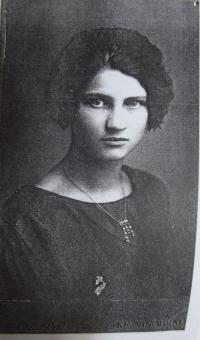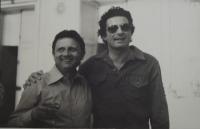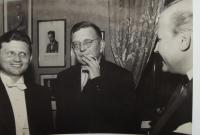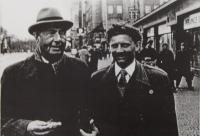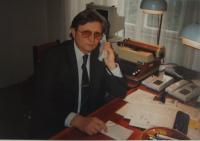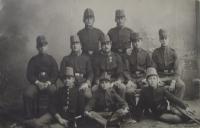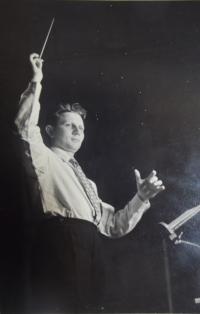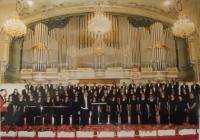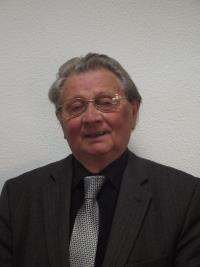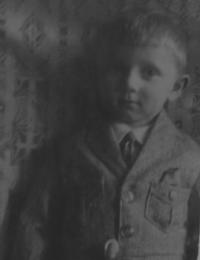The only real law is the Ten Commandments

Download image
Josef Maria Dobrodinský was born on July 22, 1925 at his grandparents home in Kunžak. He was raised by his parents in Prague. His father was a harpist in the Czech Philharmonic, and his mother was primarily a housewife, but also a professional violoncello player. Josef Maria Dobrodinský studied at a French elementary school and continued his studies at a grammar school on Křemencova Street in Prague. He graduated in 1945, and continued studying at the conservatory where he specialized in French horn. He graduated from the conservatory in 1948, and a year later he passed a state choir and conducting examination. After the war he studied philosophy, sociology and music studies at Charles University in Prague. As an active member of the Czechoslovak People’s Party (ČSL) he became involved in the unrests of 1948 and served as the chairman of the Club of Young Academics. The communist coup d’état marred his political ambitions and affected his studies at the Faculty of Arts. Although Josef Maria was eventually able to successfully complete his studies, his anit-communist activities became registered in his personal file and they haunted him during his entire professional life. After graduation he became the choirmaster of the church choir in Nusle and played the French horn in various orchestras, including the National Theatre orchestra. He also played in Vaclav Talich’s Czech Chamber Orchestra, and later became a student of the composer. When Talich was banned from teaching in Prague, Josef followed him to Bratislava. From 1950 to 1954 Dobrodinsky studied at the Academy of Performing Arts (VŠMU) in Bratislava. After completing his studies he was accepted as a choirmaster into the Mixed Choir of the Bratislava Radio. In 1977, however, he had to end his successful career due to political reasons. Although he was asked to work with the famous conductor A. Lombard, the authorities did not allow him to leave the country, and he thus had to abandon any hopes of a career abroad. In 1978 he was made the second choirmaster of the Prague Choir of the Czechoslovak Radio. After four years as a choirmaster, he was offered the position oforchestra conductor. He accepted, and thus became the head conductor of the Central Bohemian Symphonic Orchestra. He was also active as a teacher during this time, at first at the Bratislava Conservatory and later at VŠMU Bratislava, where he taught until 1993. Josef actively participated in the political events of November 1989, althought at that time he was of retirement age. As a politician of the formerly abolished Czechoslovak People’s Party he became a member of the new KDU-ČSL. The party made use of his academic background and made him an advisor to the Czech minister of culture, Jindřich Kabát, and later to Pavel Tigrid. He retreated from the political scene in 1996, but he still continues teaching at the Pedagogical Faculty of Charles University and in the academic music association AHUV. Josef Maria Dobrodinský is an honorary conductor and choirmaster of the Slovak Philharmonic and in 1996 he was awarded the Honorary Award of the Minister of Culture of the Slovak Republic. He is also an honorary member of Rotary Club.
